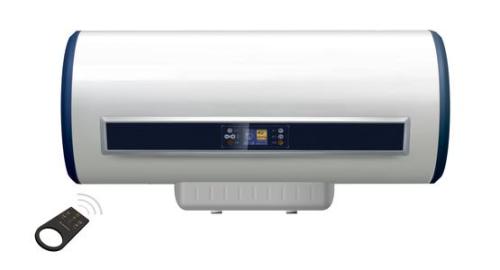In recent years, the “intelligent†wind of the home appliance industry has been gaining momentum. With the continuous maturation and improvement of sensing and intelligent control technologies, smart Home Appliances in the field of white electricity have gradually “laid down†and appeared in the market. As an important category in the field of white electricity, water heaters also usher in an era of intelligence. SHENZHEN CHONDEKUAI TECHNOLOGY CO.LTD , https://www.szsiheyi.com
According to data from the National Information Center, the growth rate of the water heater market in the first quarter of 2014 was down year-on-year, with sales of only 5.0728 million units and sales of 9.501 billion yuan, down 10.42% and 10.23% year-on-year, respectively; while sales of high-end products fell 3.62% year-on-year. %, sales fell by 2.36% year-on-year, and the drop was significantly lower than the overall market, with smart water heater sales accounting for more than 20% year-on-year growth.
Cai Ying, deputy director of the Resource Development Department of the National Information Center, analyzed that the sales of water heaters in the first quarter had a bad start, which was directly related to the weakness of the real estate market. The decline in sales of new homes and the decline in the volume of second-hand housing were the main reasons.
Participating companies said that from the data point of view, although the water heater industry was blocked in the beginning of 2014, but the market performance of intelligent high-end products is undoubtedly the new "dawn" of the water heater industry's future development.
E-commerce is fierce, water heater sales force
At the “2014 Smart Water Heater Summitâ€, Mr. Guo Meide, General Manager of Ovey Consulting's E-Commerce Division shared the monitoring data from the online, offline and consumer side with industry experts, companies and media attending the meeting.
The monitoring data shows that the e-commerce model has brought a huge impact on the sales of water heaters in the offline market. From 2012 to 2014, the proportion of online sales has continuously increased, and the ratio between online and offline has increased from 3.1 to 3.8; Tmall, Jingdong, and Yixun three appliance companies accounted for 80% of the online sales of electric water heaters, of which Tmall is the main channel for online water heater sales; in addition, from the brand point of view, the online sales of low-end products is Domestic brands are even more dominant, while the performance of online high-end markets is still a strong joint venture brand.
Guo Meide told the China National Grid Reporter: Although the momentum of e-commerce development is very rapid now, it is still in a progressive stage of "staking races." For Internet e-commerce, the current first and second-tier cities have basically achieved universal access. The penetration rate of line cities is still relatively low. In the future, e-commerce companies will gradually open up the three or four-tier market and improve various shopping experiences such as delivery and maintenance.
The third and fourth tier cities are expected to become the main battlefield in the future
In the interview, Cai Ying, deputy director of the Resource Development Department of the National Information Center, pointed out that new changes are taking place in the water heater industry. While the dominant market in the first-tier cities is declining, the market in second-tier cities is basically the same, and the market share in the third and fourth tier cities Has been significantly improved.
Guo Meide, general manager of Ovie Consulting's e-commerce division, mentioned monitoring data: The third- and fourth-tier cities are still very large cakes in the home appliance industry. We look at our sanitary products from the entire living environment and the future development space for three or four-tier cities. Larger, e-commerce sinking to third-tier cities will also stimulate consumer demand for home appliances in third- and fourth-tier cities.
Some people in the industry generally believe that consumer demand for basic household appliances in the first and second-tier cities is becoming increasingly saturated. However, due to the impact of urbanization in China, the consumption needs of third- and fourth-tier urban residents for water heaters and other household appliances will be further released. The development prospects are optimistic.
According to the analysis, it can be inferred that the home appliance market in the first and second tier cities in the future will be replaced by the replacement tide. The high-end products such as smart home appliances and custom home appliances will achieve greater development. The third and fourth tier cities are still the "blue sea" of the home appliance market. Because of the huge potential consumer demand, it is very likely that they will become the new main battlefield for future home appliances such as water heaters.